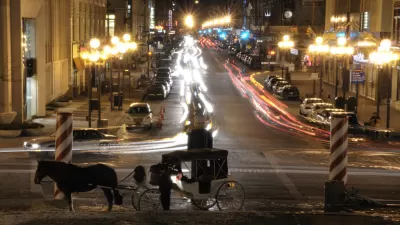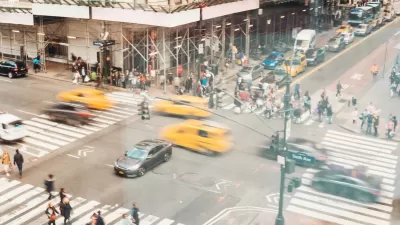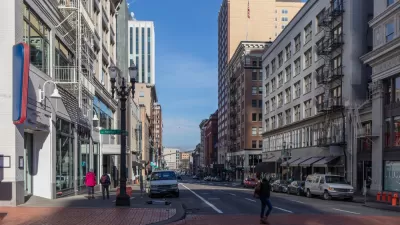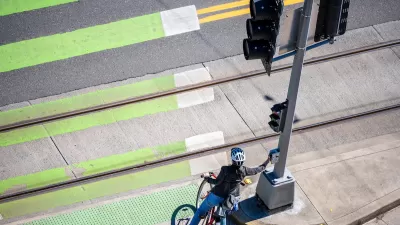The group is tasked with making a deeper assessment of the underlying infrastructural causes of fatal crashes and recommending improvements.

A recently formed Indianapolis city commission seeks to improve the way the city investigates fatal car crashes, reports David Zipper for Bloomberg CityLab. “The commission looks beyond police reports, identifying ways in which street adjustments might reduce the likelihood of another crash and then sharing its recommendations to city leaders as well as the general public.”
The Fatal Crash Review Commission will fill a gap where both local police forces and the National Transportation Safety Board (NTSB) often fall short. “Trained to assign individual blame, police officers may lack the skills or inclination to consider contributing factors like road design,” Zipper explains, while the NTSB focuses its investigations of car crashes on new technology and other precedent-setting situations rather than the thousands of deadly crashes that happen daily on U.S. roads.
As Zipper explains, “After the police complete their investigation, the commission looks for ways in which the built environment may have played a contributing role, considering possible fixes such as adding a pedestrian island or adjusting traffic light signals. Final recommendations are given to the mayor, city council, the chief of police, and the head of the department of public works (which manages roadways).”
The commission’s impact could be confined by its scope, which “is limited to roadway design; crash factors like vehicle features, public health, and law enforcement are outside its purview.” However, advocates hope it can provide a starting point for a deeper understanding of why crashes happen and how to prevent them.
FULL STORY: Indianapolis Gets Serious About Car Crash Investigations

Maui's Vacation Rental Debate Turns Ugly
Verbal attacks, misinformation campaigns and fistfights plague a high-stakes debate to convert thousands of vacation rentals into long-term housing.

Planetizen Federal Action Tracker
A weekly monitor of how Trump’s orders and actions are impacting planners and planning in America.

San Francisco Suspends Traffic Calming Amidst Record Deaths
Citing “a challenging fiscal landscape,” the city will cease the program on the heels of 42 traffic deaths, including 24 pedestrians.

Defunct Pittsburgh Power Plant to Become Residential Tower
A decommissioned steam heat plant will be redeveloped into almost 100 affordable housing units.

Trump Prompts Restructuring of Transportation Research Board in “Unprecedented Overreach”
The TRB has eliminated more than half of its committees including those focused on climate, equity, and cities.

Amtrak Rolls Out New Orleans to Alabama “Mardi Gras” Train
The new service will operate morning and evening departures between Mobile and New Orleans.
Urban Design for Planners 1: Software Tools
This six-course series explores essential urban design concepts using open source software and equips planners with the tools they need to participate fully in the urban design process.
Planning for Universal Design
Learn the tools for implementing Universal Design in planning regulations.
Heyer Gruel & Associates PA
JM Goldson LLC
Custer County Colorado
City of Camden Redevelopment Agency
City of Astoria
Transportation Research & Education Center (TREC) at Portland State University
Jefferson Parish Government
Camden Redevelopment Agency
City of Claremont





























